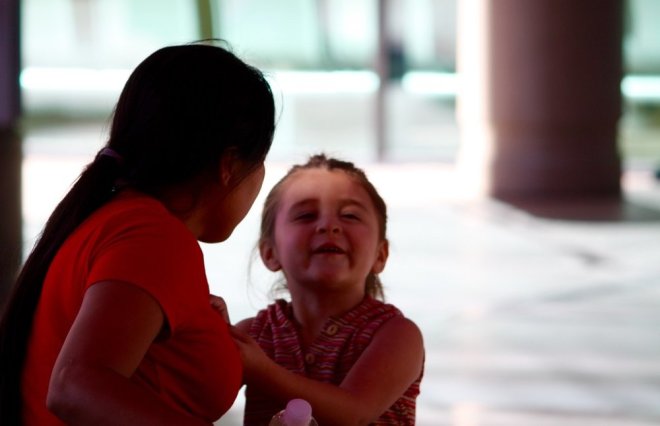Who, in their right mind, is going to say, “To hell with the kids, let them fend for themselves, who need ’em.” Even those who aren’t comfortable around little ones or who have no desire to have any children of their own are likely to have a soft spot for a precious niece or nephew or adorable neighborhood urchin. For the vast majority of us it’s a genetic disposition to emotionally and/or cognitively understand the importance of contributing toward the upbringing and development of the next generation. That would seem to be a good thing. Not even a hundred years ago one could imagine that one of the strong motivations toward having kids was a strong feeling that having kids insured that there would be someone around to take care of you when you became too old or too ill to take care of yourself. But that seems to be even less true as Western Culture has move from Industrialization to the Information Age and beyond. So, why kids? Right, they’re our future.But what the hell does that really mean? Is it just a way of expressing the reality that for humanity to survive we need enough offspring to keep the species going, or is there really something more here?
I had a roommate who had raised his three kids as a single parent, then unfairly lost everything when he was fighting cancer and couldn’t pay the bills or work because of the illness. He was in remission when we met and was fighting to qualify for disability. It was a daily challenge for him to get out of bed and keep plugging away. But the one thing that seemed to bring life to his tired body was when he got to spend time with his two grandkids, who live less than a mile away. Regardless of how angry he was getting about the politicians lying on TV, or the wrongs that he’d seen growing up, or the frustrations at feeling useless and ignored, an afternoon with the grandkids made all of that go away.
Maybe it isn’t so much that we expect them to pick us up when we’re too old to carry ourselves about, but that getting a chance to spend time with such young souls can be all it takes to make one feel the power of life when we’ve forgotten that there was ever such a thing in the world. There’s a line in “Lost in Translation” when Bill Murray’s character is telling Scarlett Johansson’s character what it’s like to have kids:
“Your life as you know it is gone, never to return. But they learn how to walk and they learn how to talk, and you wanna be with them. And they turn out to be the most delightful people that you will ever meet in your life.”
I really don’t know what most people mean when they say that children “are our future.” I just know that there’s a connection, a bloodline, a part of myself that has his and her own lives on the other side of the continent, that makes me want to leave the world better than when I made my small and insignificant arrival. It’s not about me or what I might accomplish, but what I might be able to do to pave the road for those who have come after me.
I originally wanted to make this article about the double-speak often employed by those who use “Family” and “Children” in their political rhetoric while actively dismantling the cultural infrastructure that future generations are going to depend on to build their own version of this world. But that would be a straw-man argument and I frankly don’t give a shit about the political rhetoric beyond a riff on the old boy scout saying:
“What are doing or are going to do so that you leave this world better than how you found it?”
Let that express what you mean by “We believe that Children are our future.”

2016 California Science Center (Los Angeles CA)
Video clip:Lost in Translation, Focus Features 2003











